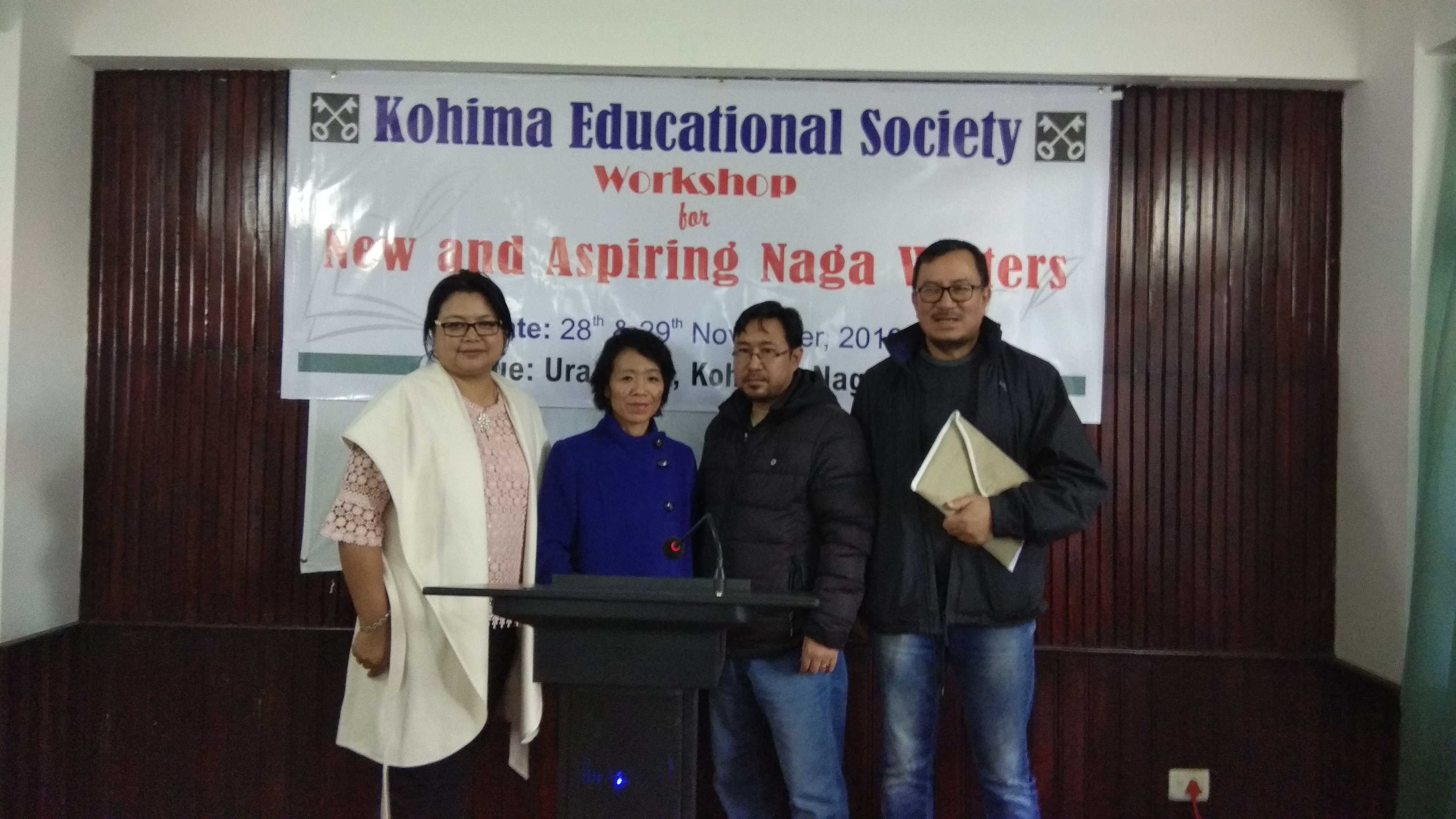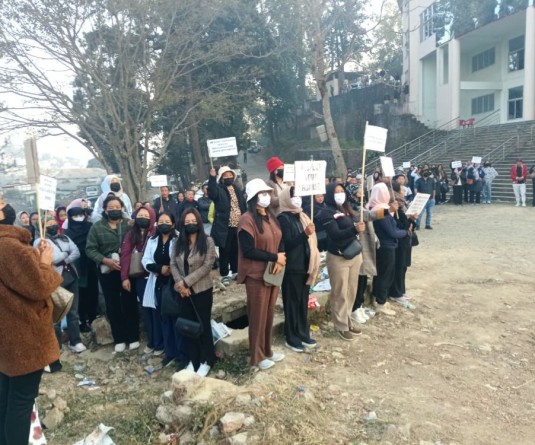Journalism, writing needs to reflect on societal realities and struggles

KES writing workshop for new and aspiring Naga writers underway
Morung Express News
Kohima | November 28
"We are not quite there yet especially in terms of getting our books marketed but I firmly believe that slowly but surely we will get there someday. That our books will be read not only by Nagas but by people from all over the world," said writer and publisher Vishü Rita Krocha at the writing workshop for new and aspiring Naga writers.
Organised by the Kohima Educational Society the workshop is currently underway at Hotel Ura from November 28-29. Focusing on writing in the local and regional context and experiences, renowned Naga writers will be facilitating two days of rigorous workshop for young writers.
"From my experience, the greatest challenge in publishing books in Nagaland has been the lack of readership. The book market is painfully slow. So you need a lot of patience to have your books sold and only years later, be able to make up the capital you invested in for a particular book," viewed Vishü Rita Krocha.
Sharing her experiences of publishing in Nagaland, Krocha whose publication house- PenThrill- completed six years recently, noted that the lack of avid and devoted readership is a major hurdle for writers and publishers. This inconsistency leads to books being shelved in stores for years, often leading to their withdrawals from the stores. "Such moments can take a toll on you, makes you want to give up, but then again, if you do, then the whole purpose of following a dream is defeated," says Krocha.
However the good news, according to Krocha, is the emergence of many new, fresh voices. Along with the increase in the number of writers, there has also been an increase in the number of readers- a positive outcome for the entire literature community in Nagaland.
"In publishing books, I am more and more convinced that this is one of the greatest gifts we can leave behind for the generation to come. For in telling our stories, we also leave behind a wealth of knowledge for our children to read and learn about the culture that they come from," notes Krocha. A new book may not mean much as readers picks it for pleasure, entertainment or knowledge, however Krocha poignantly notes, "Years from now, when you are long gone, that book will still be around to be held by somebody’s hands, where you will be still sharing your life story with somebody you never knew. And the fact that you are leaving behind a story of a life as you saw it—to be read and imagined by another reader is something worth pursuing."
Interpreting the role of writers/ journalists in Naga society today, Bano Haralu, Editor, Nagaland Today, shared her journey in the field of broadcasting journalism in the country and print journalism in Nagaland. Speaking on print media, Haralu mentioned that the medium arrived much earlier than what most Nagas today assume. Print media was established with the arrival of Christian missionaries with the first journal recorded circa 1932 under the name 'Kewhira Dielie' (Kohima News) published by George W. Supplee. With each significant era of Naga history from the advent of American Missionaries and Naga nationalism to the present day, Haralu noted the change in the presentation of news. In the emergence of Naga Nationalism, Haralu pointed out, "Instead of us writing our stories, we've had others writing our stories. But today we have reached a time where we are beginning to write our own stories."
With the freedom and liberty of writing one's own stories, Haralu questioned if writers in Nagaland are reaching to the interiors, grassroots, marginalised cataloguing and documenting their stories. "How much of the news we are putting is actually communicating with people who really matters. I don't think, we are communicating enough," remarked Haralu adding that journalism and writing need to reflect more on common societal realities and struggles.
The third session was conducted by Oken Jeet Sandham, Senior Journalist who spoke on 'Writing in Nagaland: My experience'. Pradip Phanjoubam, Editor, Imphal Free Press, spoke on the different styles of writing in the fourth session.
The second day of the workshop will host writers from varied backgrounds including Naga Writer Easterine Kire who will be speaking on 'Techniques of fiction writing: My experience', and Kethoser Kevichüsa, Winner of the first GGPNL presenting a discourse on 'Life skills and tools for required for a fulfilling life'.
The importance of writing and literature for Naga society - an interactive session will be facilitated by Dr Aküm Longchari, Publisher, The Morung Express, while Pradip Phanjoubam will speak on 'Literature/books and their potential in North East India'. Dr P Ngully, Chairman KES will further speak on 'Mental health and writing'.






